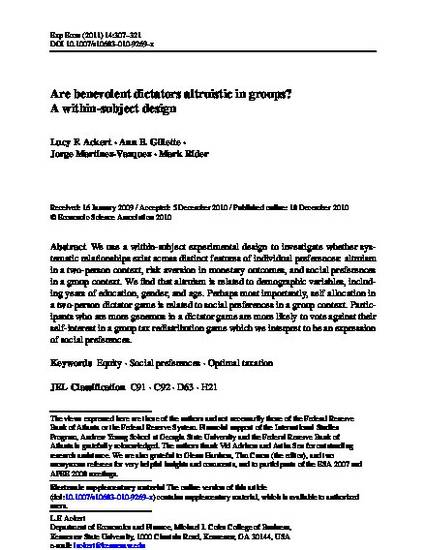
Article
Are Benevolent Dictators Altruistic in Groups? A Within-Subject Design
Experimental Economics
Department
Economics, Finance and Quantitative Analysis
Document Type
Article
Publication Date
9-1-2011
Disciplines
Abstract
We use a within-subject experimental design to investigate whether systematic relationships exist across distinct features of individual preferences: altruism in a two-person context, risk aversion in monetary outcomes, and social preferences in a group context. We find that altruism is related to demographic variables, including years of education, gender, and age. Perhaps most importantly, self allocation in a two-person dictator game is related to social preferences in a group context. Participants who are more generous in a dictator game are more likely to vote against their self-interest in a group tax redistribution game which we interpret to be an expression of social preferences.
Citation Information
Ackert, Lucy, et al. "Are Benevolent Dictators Altruistic in Groups? A Within-Subject Design." Experimental Economics 14.3 (2011): 307-21.

This is the accepted version of the following article: Ackert, Lucy, et al. "Are Benevolent Dictators Altruistic in Groups? A Within-Subject Design." Experimental Economics 14.3 (2011): 307-21., which has been published in final form at http://dx.doi.org/10.1007/s10683-010-9269-x.